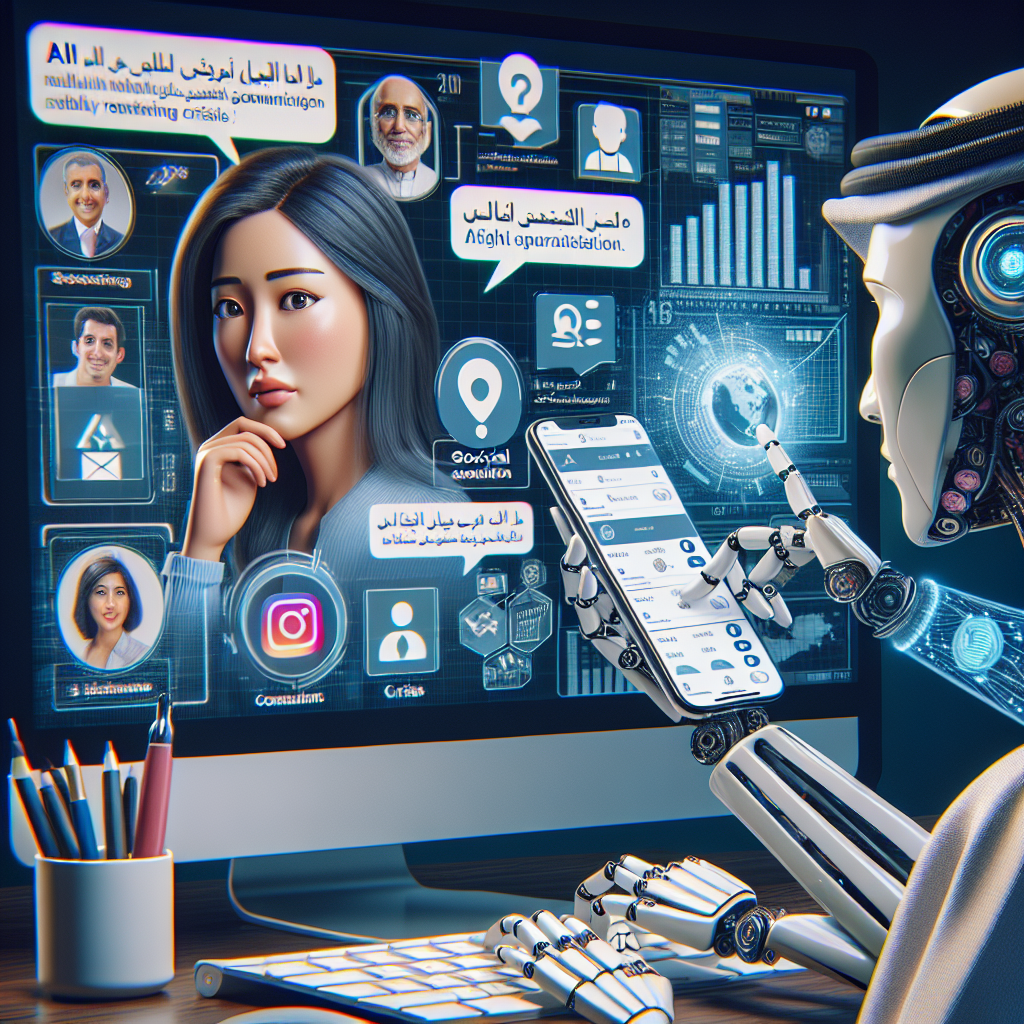In today’s digital age, social media has become an integral part of our daily lives. It is a platform where people share their thoughts, opinions, and experiences with the world. However, with the rise of social media, comes the risk of crises and emergencies that can spread rapidly and have a significant impact on individuals, organizations, and even governments.
During a crisis, effective communication is crucial to mitigate the situation and prevent further damage. Social media has emerged as a powerful tool for crisis communication and response, allowing organizations to reach a large audience quickly and efficiently. In recent years, the role of artificial intelligence (AI) in social media crisis communication has become increasingly important.
AI technologies, such as natural language processing, sentiment analysis, and machine learning, are being used to monitor social media conversations, detect potential crises, and provide timely responses. In this article, we will explore the role of AI in social media crisis communication and response, and how it is helping organizations better manage and navigate through crises.
The Role of AI in Social Media Crisis Communication and Response
1. Monitoring Social Media Conversations: AI technologies are being used to monitor social media conversations in real-time to detect potential crises or emergencies. By analyzing keywords, sentiments, and trends, AI can identify potential issues before they escalate. This allows organizations to respond quickly and effectively, mitigating the impact of the crisis.
2. Sentiment Analysis: AI-powered sentiment analysis tools can analyze the tone and sentiment of social media conversations to gauge public opinion and identify potential issues. By understanding the sentiment of the audience, organizations can tailor their responses and messaging to address concerns and alleviate fears.
3. Crisis Detection: AI technologies can also be used to detect crises and emergencies based on patterns and anomalies in social media conversations. By analyzing large volumes of data, AI can identify sudden spikes in negative sentiment or mentions of specific keywords that may indicate a crisis. This early detection allows organizations to respond proactively and prevent the crisis from escalating.
4. Automated Response: AI-powered chatbots and automated response systems can provide immediate assistance and information to individuals during a crisis. These chatbots can answer frequently asked questions, provide updates, and direct users to relevant resources, freeing up human resources to focus on more critical tasks.
5. Predictive Analytics: AI technologies can analyze historical data and trends to predict potential crises and emergencies before they occur. By identifying patterns and correlations, AI can help organizations anticipate and prepare for future crises, allowing them to develop proactive strategies and response plans.
FAQs
1. How does AI help in crisis communication on social media?
AI technologies help in crisis communication on social media by monitoring conversations, analyzing sentiments, detecting crises, providing automated responses, and predicting future crises. By leveraging AI tools, organizations can respond quickly and effectively to crises, mitigate the impact, and prevent further damage.
2. What are some common AI tools used in social media crisis communication?
Some common AI tools used in social media crisis communication include natural language processing, sentiment analysis, machine learning, chatbots, and predictive analytics. These tools help organizations monitor social media conversations, analyze sentiments, detect crises, provide automated responses, and predict future crises.
3. How can organizations integrate AI into their social media crisis communication strategy?
Organizations can integrate AI into their social media crisis communication strategy by investing in AI technologies, training their teams on AI tools and techniques, and developing proactive strategies and response plans. By leveraging AI, organizations can improve their crisis communication capabilities, respond quickly to crises, and protect their reputation.
4. What are the benefits of using AI in social media crisis communication?
Some benefits of using AI in social media crisis communication include faster response times, improved accuracy and efficiency, enhanced monitoring capabilities, better understanding of public sentiment, and predictive analytics. By leveraging AI, organizations can better manage and navigate through crises, protect their brand reputation, and build trust with their audience.
In conclusion, the role of AI in social media crisis communication and response is becoming increasingly important in today’s digital world. AI technologies are helping organizations monitor conversations, analyze sentiments, detect crises, provide automated responses, and predict future crises. By leveraging AI tools, organizations can better manage and navigate through crises, protect their reputation, and build trust with their audience. As social media continues to evolve, AI will play a crucial role in enhancing crisis communication strategies and ensuring effective responses to emergencies.

